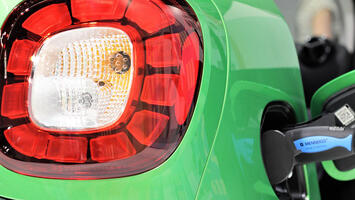
Until the current elite owners can demonstrate to the middle-income and those on fixed incomes that their EV’s are their primary family workhorse vehicles, and a solution to shipping potentially flammable EV batteries to American ports is resolved, may all be a prelude to a financial crisis brewing for the auto industry.
Amid tougher emissions regulations worldwide, established automakers are racing to add more EVs to their lineup. A Reuters analysis found that global automakers such as Audi, BMW, Hyundai, Fiat, Volkswagen, GM, Ford, Nissan, Toyota, Daimler, and Chrysler plan to spend a combined U.S. $300 billion on EVs over the next decade as car companies are betting big on EV’s. Most of the EV’s will be manufactured in foreign countries far removed from American ports.;
China came from zero production in 1950, to 2019 where it now produces more cars than the USA, Japan, and India collectively. The 6-minute video of the automobile manufacturing “needle” shows how the foreign manufacturing dominance occurred over the that 69-year period.
Automobiles manufactured per year.

Bringing those foreign built cars to America may be an insurmountable insurance problem. The Felicity Ace, a 650-foot-long cargo ship carrying hundreds of millions of dollars’ worth of luxury cars sunk in March 2022. The salvage crew working on the burning ship said electric-vehicle batteries were part of the reason it was still aflame after several days. The estimated market value of the Felicity Ace was $24.5 million, while the total value of the 3965 vehicles could be over $500 million.
With potential fires from EV batteries, who’s going to take the insurance responsibility for their safe passage from the foreign manufacturers to American ports, the cargo ships, or the manufacturers?
Read the rest at Eurasian Review.
Ron Stein is an engineer who, drawing upon 25 years of project management and business development experience, launched PTS Advance in 1995. He is an author, engineer, and energy expert who writes frequently on issues of energy and economics.
Photo: courtesy Eurasian Review












